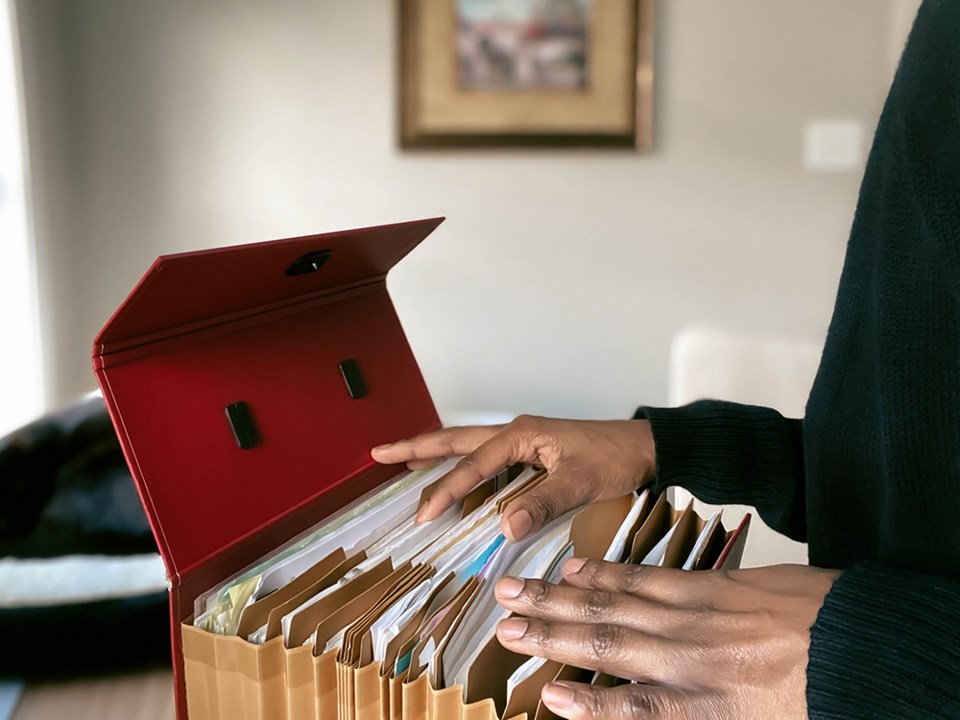Despite the fact that we are living in the digital age, so many people are still immersed in paper clutter. When I ask my clients what their biggest organizing challenge is, paper management is always on the top of the list.
Keep this quote by Barbara Hemphill in mind when you start decluttering your paper: “Paper clutter is no more than postponed decisions.”
Daily decluttering
Devote just 10 minutes every day by clearing outdated paper sitting on your desk, coffee table, kitchen counters and night tables. We are focusing on the visible clutter,which brings us feelings of overwhelm and embarrassment.
Mind the mail
It only takes a few minutes to sort your daily mail. Open it over the recycle bin, and immediately get rid of anything you don’t need. If you don’t need flyers, don’t bring them to your house. Now take five minutes to sort the mail you need in categories. Sort bills, important papers, papers to read and papers for your family members into trays labelled for each person.
Manage your memories
This one is tough for all of us. We just can’t bring ourselves to let go of sentimental papers. The old love letters, your child’s masterpiece, birthday cards from a dear friend, flyers from your favourite vacation, wedding invitations you attended in the last century, or pictures of people who are not in your life today.
Reevaluate your sentimentality. I suggest two small and beautiful boxes. Once the boxes are full, let go of the papers that have the least sentimental importance. This way, the only papers in the boxes are those you love. You can scan your photos and papers and keep a digital memory instead of the physical one.
Magazines or minefields
I once had a client, an intelligent professional woman who had over five thousand magazines, many of them never read. Her entire small living room was covered in stacks of beautiful glossy magazines. She was saving the magazines to read one day.
In the meantime, she didn’t have the space to work or relax. When you read a magazine, you’re bound to find an article, recipe or craft you wish to reference later. Cut out the page you wish to keep and file it in your filing system.
I have discovered that if we don’t schedule the time, we will never read a word in a magazine or book.
Document-keeping dynamo
Sometimes it’s difficult to decide what to keep and what to toss, especially when it comes to the bank, credit card statements, tax returns, cancelled cheques, et cetera. It’s always advisable that you speak with your accountant to determine how long you should keep certain papers. The average person who is not operating a business can generally:
• Keep paid bills for non-tax-deductible items and utilities for one year.
• Toss receipts for credit card purchases and ATM receipts once monthly statements have arrived.
• Recycle monthly stock or other financial statements once annual statements have arrived.
Ranka Burzan owns a professional organizing company based in Powell River and has written several books on reducing clutter and becoming more organized. For information, go to solutionsorganizing.com.



